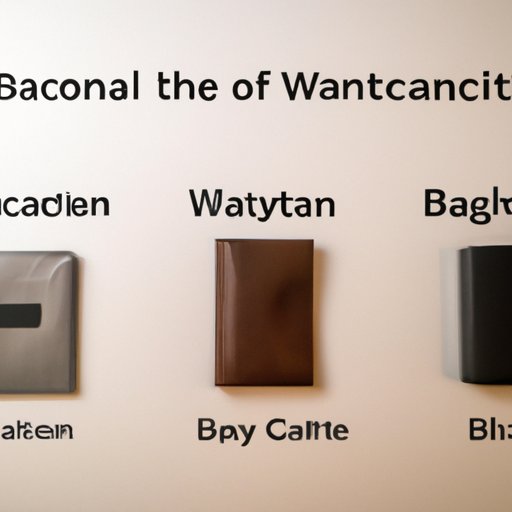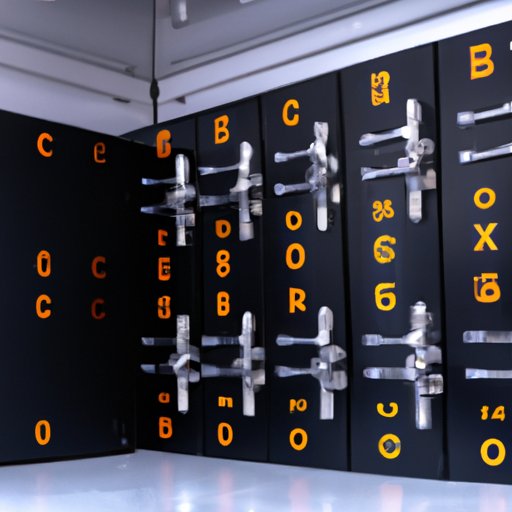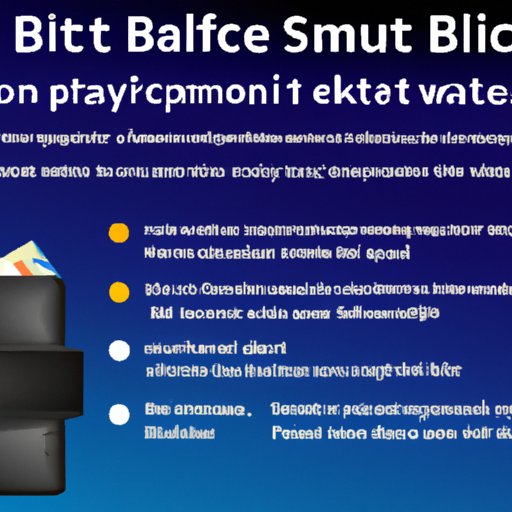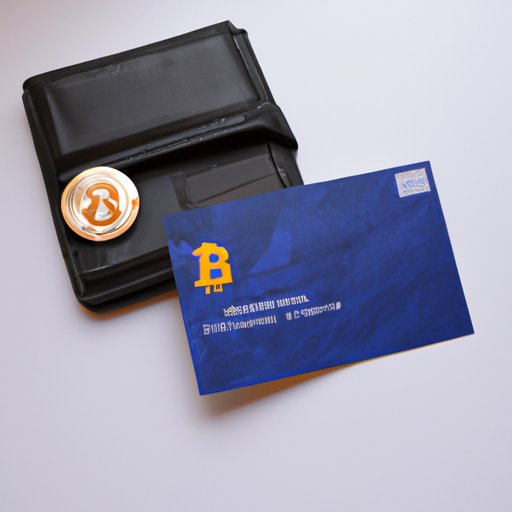Introduction
Bitcoin is a decentralized digital currency that can be used to make secure payments online. As it is not controlled by any central authority, it is important to store your bitcoins securely in order to protect them from theft or loss. There are a number of different types of wallets available, each with its own advantages and disadvantages. In this guide, we will explore the different types of wallets and help you decide which one is best for you.
Explaining How to Choose a Bitcoin Wallet
When selecting a bitcoin wallet, there are a few factors to consider. These include security, ease of use, and cost. Depending on your level of expertise, some wallets may be more suitable than others. It is also important to note that different wallets offer different features, so be sure to choose one that meets your needs.
Factors to Consider When Selecting a Wallet
Security: Security should be the top priority when selecting a wallet. Look for wallets that have strong encryption and multi-factor authentication. It is also important to choose a wallet provider that has a good reputation.
Ease of Use: Different wallets have different user interfaces. Some may be easier to use than others, depending on your level of experience. Be sure to select a wallet that is easy to use and understand.
Cost: There are both free and paid wallets available. If you are new to bitcoin, it may be best to start with a free wallet before investing in a paid one.
Different Types of Wallets Available
Hot Wallets: Hot wallets are connected to the internet and are generally considered less secure than other types of wallets. They are convenient for making quick transactions, but they are not suitable for long-term storage of large amounts of bitcoin.
Cold Wallets: Cold wallets are not connected to the internet and are considered the most secure way to store bitcoin. They are often referred to as “offline wallets” and require a bit of technical knowledge to operate. They are ideal for long-term storage of large amounts of bitcoin.
Paper Wallets: Paper wallets are printed versions of private keys. They are considered quite secure, but they can be lost or destroyed easily. They are not recommended for day-to-day use, but they are a good choice for long-term storage.
Mobile Wallets: Mobile wallets are apps that can be installed on mobile devices. They are convenient for making payments on the go, but they are not as secure as other types of wallets. They are best suited for small amounts of bitcoin.

Comparing the Different Types of Bitcoin Wallets
When comparing different types of wallets, it is important to consider the pros and cons of each. Below is a brief overview of the pros and cons of each type of wallet.
Pros and Cons of Each Type of Wallet
Hot Wallets: Pros – Easy to use, good for making quick payments. Cons – Not as secure as other types of wallets.
Cold Wallets: Pros – Highly secure, ideal for long-term storage. Cons – Requires technical knowledge to use, not suitable for making quick payments.
Paper Wallets: Pros – Highly secure, good for long-term storage. Cons – Easily lost or destroyed, not suitable for day-to-day use.
Mobile Wallets: Pros – Convenient for making payments on the go. Cons – Not as secure as other types of wallets.

An Overview of Cold Storage Solutions for Bitcoin
Cold storage is a method of storing bitcoin offline. It is considered the most secure way to store bitcoin, as it eliminates the risk of theft or hacking. There are several different cold storage solutions available, including hardware wallets, paper wallets, and offline computer storage.
Benefits of Cold Storage
The main benefit of cold storage is security. By keeping your bitcoin offline, you reduce the risk of it being stolen or hacked. Cold storage also eliminates the need for third-party services, which can be unreliable or untrustworthy.
Different Cold Storage Solutions Available
Hardware Wallets: Hardware wallets are physical devices that store your bitcoin offline. They are considered the most secure type of cold storage, as they are not vulnerable to hackers. They are also easy to use and relatively inexpensive.
Paper Wallets: Paper wallets are simply printed versions of private keys. They are considered quite secure, but they can be lost or destroyed easily. They are not recommended for day-to-day use, but they are a good choice for long-term storage.
Offline Computer Storage: Offline computer storage is another option for cold storage. It involves storing your bitcoin on a computer that is not connected to the internet. This is considered safer than hot wallets, but it requires a certain level of technical knowledge to set up.
Examining the Pros and Cons of Mobile Bitcoin Wallets
Mobile wallets are apps that can be installed on mobile devices. They offer convenience and portability, but they are not as secure as other types of wallets. Here are some of the advantages and disadvantages of using a mobile wallet.
Advantages of Mobile Wallets
Convenience: Mobile wallets are convenient for making payments on the go. They allow users to access their funds anytime, anywhere.
Portability: Mobile wallets can be accessed from any device with an internet connection. This makes them ideal for traveling or for those who don’t always have access to a desktop or laptop computer.
Disadvantages of Mobile Wallets
Security: Mobile wallets are not as secure as other types of wallets. They are vulnerable to hacking and malware attacks.
Lack of Features: Mobile wallets usually lack some of the features found in other wallets, such as multi-signature support and advanced security options.

Guide to Securing Your Bitcoin Wallet
Once you have chosen a wallet, it is important to take steps to secure it. Here are some tips for securing your wallet and protecting your bitcoins.
Steps to Take to Secure Your Wallet
Use Strong Passwords: Make sure to use strong and unique passwords for each of your wallets. Avoid using common words or phrases, and never share your passwords with anyone.
Backup Your Wallet: It is important to create regular backups of your wallet. This will ensure that your funds are safe in the event of a computer failure or other emergency.
Enable Two-Factor Authentication: Most wallets offer two-factor authentication, which adds an extra layer of security to your account. This requires you to enter an additional code when logging in.
Don’t Store Large Amounts of Bitcoin in a Single Wallet: It is not recommended to store large amounts of bitcoin in a single wallet. Spread your funds across multiple wallets to reduce the risk of theft or loss.
Use a Trusted Wallet Provider: Make sure to research and select a reputable wallet provider. Look for reviews online and check for any red flags before making a decision.
Conclusion
In conclusion, it is important to choose the right wallet for your needs. Different types of wallets offer different levels of security and convenience. It is also important to take steps to secure your wallet and protect your funds. By following the tips outlined in this guide, you can ensure that your bitcoins are stored safely and securely.
(Note: Is this article not meeting your expectations? Do you have knowledge or insights to share? Unlock new opportunities and expand your reach by joining our authors team. Click Registration to join us and share your expertise with our readers.)
